116 papers:
 DAC-2015-WolfF #architecture #continuation #question #what
DAC-2015-WolfF #architecture #continuation #question #what- What don’t we know about CPS architectures? (MW, EF), p. 4.
 ICPC-2015-MinelliML #developer #how #what
ICPC-2015-MinelliML #developer #how #what- I know what you did last summer: an investigation of how developers spend their time (RM, AM, ML), pp. 25–35.
 CHI-2015-ClarkSMK #comprehension #image #privacy #quote
CHI-2015-ClarkSMK #comprehension #image #privacy #quote- “I Saw Images I Didn’t Even Know I Had”: Understanding User Perceptions of Cloud Storage Privacy (JWC, PS, DM, CK), pp. 1641–1644.
 CHI-2015-HangLH #authentication #exclamation #security #smarttech #what
CHI-2015-HangLH #authentication #exclamation #security #smarttech #what- I Know What You Did Last Week! Do You?: Dynamic Security Questions for Fallback Authentication on Smartphones (AH, ADL, HH), pp. 1383–1392.
 CHI-2015-KimCD #detection #interactive #monitoring
CHI-2015-KimCD #detection #interactive #monitoring- Sensors Know When to Interrupt You in the Car: Detecting Driver Interruptibility Through Monitoring of Peripheral Interactions (SK, JC, AKD), pp. 487–496.
 CHI-2015-WarshawMWKBS #algorithm #comprehension #people
CHI-2015-WarshawMWKBS #algorithm #comprehension #people- Can an Algorithm Know the “Real You”?: Understanding People’s Reactions to Hyper-personal Analytics Systems (JW, TM, SW, CK, MNB, BAS), pp. 797–806.
 LCT-2015-ValdezBGSZ #complexity #visualisation #what
LCT-2015-ValdezBGSZ #complexity #visualisation #what- What Do My Colleagues Know? Dealing with Cognitive Complexity in Organizations Through Visualizations (ACV, SB, CG, US, MZ), pp. 449–459.
 RecSys-2015-Abel #recommendation
RecSys-2015-Abel #recommendation- We Know Where You Should Work Next Summer: Job Recommendations (FA), p. 230.
 MoDELS-2015-SunkleKK #case study #modelling
MoDELS-2015-SunkleKK #case study #modelling- Model-driven regulatory compliance: A case study of “Know Your Customer” regulations (SS, DK, VK), pp. 436–445.
 ESEC-FSE-2015-HermannREM #java #towards
ESEC-FSE-2015-HermannREM #java #towards- Getting to know you: towards a capability model for Java (BH, MR, ME, MM), pp. 758–769.
 ESEC-FSE-2015-JohnsonPMH #adaptation #concept #developer #tool support
ESEC-FSE-2015-JohnsonPMH #adaptation #concept #developer #tool support- Bespoke tools: adapted to the concepts developers know (BJ, RP, ERMH, SH), pp. 878–881.
 ICSE-v2-2015-PetersM #re-engineering #what
ICSE-v2-2015-PetersM #re-engineering #what- Educating Software Engineering Managers — Revisited What Software Project Managers Need to Know Today (LP, AMM), pp. 353–359.
 PPoPP-2015-Gramoli #algorithm #concurrent #impact analysis
PPoPP-2015-Gramoli #algorithm #concurrent #impact analysis- More than you ever wanted to know about synchronization: synchrobench, measuring the impact of the synchronization on concurrent algorithms (VG), pp. 1–10.
 SIGMOD-2014-AgarwalMKTJMMS #approximate #performance #query #reliability
SIGMOD-2014-AgarwalMKTJMMS #approximate #performance #query #reliability- Knowing when you’re wrong: building fast and reliable approximate query processing systems (SA, HM, AK, AT, MIJ, SM, BM, IS), pp. 481–492.
 CHI-2014-BrumbyCCF #behaviour #how #question #visual notation #what
CHI-2014-BrumbyCCF #behaviour #how #question #visual notation #what- How does knowing what you are looking for change visual search behavior? (DPB, ALC, JC, BF), pp. 3895–3898.
 CHI-2014-GouZY #automation #comprehension #social #social media
CHI-2014-GouZY #automation #comprehension #social #social media- KnowMe and ShareMe: understanding automatically discovered personality traits from social media and user sharing preferences (LG, MXZ, HY), pp. 955–964.
 ECIR-2014-MederPH #enterprise #named
ECIR-2014-MederPH #enterprise #named- DAIKnow: A Gamified Enterprise Bookmarking System (MM, TP, FH), pp. 759–762.
 KDD-2014-ZhaoGHJWL #microblog #recommendation #what
KDD-2014-ZhaoGHJWL #microblog #recommendation #what- We know what you want to buy: a demographic-based system for product recommendation on microblogs (WXZ, YG, YH, HJ, YW, XL), pp. 1935–1944.
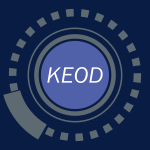 KEOD-2014-SongJ #empirical
KEOD-2014-SongJ #empirical- A Task-Aware Empirical Know-How Map Built on Domain Q&A (BS, ZJ), pp. 410–416.
 SIGIR-2014-PengS00W #smarttech
SIGIR-2014-PengS00W #smarttech- The knowing camera 2: recognizing and annotating places-of-interest in smartphone photos (PP, LS, KC, GC, SW), pp. 707–716.
 MoDELS-2014-ReggioLR #bibliography #uml #what
MoDELS-2014-ReggioLR #bibliography #uml #what- Who Knows/Uses What of the UML: A Personal Opinion Survey (GR, ML, FR), pp. 149–165.
 MoDELS-2014-ReggioLR #bibliography #uml #what
MoDELS-2014-ReggioLR #bibliography #uml #what- Who Knows/Uses What of the UML: A Personal Opinion Survey (GR, ML, FR), pp. 149–165.
 SAT-2014-BalyoFHB #set
SAT-2014-BalyoFHB #set- Everything You Always Wanted to Know about Blocked Sets (But Were Afraid to Ask) (TB, AF, MH, AB), pp. 317–332.
 HT-2013-GuerreiroG #exclamation #quote #what
HT-2013-GuerreiroG #exclamation #quote #what- “Tell me what I want to know!”: the effect of relationship closeness on the relevance of profile attributes (JG, DG), pp. 230–235.
 CHI-2013-KhovanskayaBCVG #approach #design #quote #what
CHI-2013-KhovanskayaBCVG #approach #design #quote #what- “Everybody knows what you’re doing”: a critical design approach to personal informatics (VDK, EPSB, DC, SV, GG), pp. 3403–3412.
 CSCW-2013-GrayEVL #facebook
CSCW-2013-GrayEVL #facebook- Who wants to know?: question-asking and answering practices among facebook users (RG, NBE, JV, CL), pp. 1213–1224.
 ICEIS-J-2013-KahkonenMS #enterprise #integration #question #what
ICEIS-J-2013-KahkonenMS #enterprise #integration #question #what- What Do We Know About ERP Integration? (TK, AM, KS), pp. 51–67.
 KDIR-KMIS-2013-DowGABP #information management
KDIR-KMIS-2013-DowGABP #information management- Knowing More about Knowledge Management at ESA (RMD, DG, RCA, DB, SP), pp. 281–289.
 SIGIR-2013-PengS00W #smarttech
SIGIR-2013-PengS00W #smarttech- The knowing camera: recognizing places-of-interest in smartphone photos (PP, LS, KC, GC, SW), pp. 969–972.
 REFSQ-2013-DanevaBH #architecture #case study #experience #quality #question #requirements #what
REFSQ-2013-DanevaBH #architecture #case study #experience #quality #question #requirements #what- Software Architects’ Experiences of Quality Requirements: What We Know and What We Do Not Know? (MD, LB, AH), pp. 1–17.
 SOSP-2013-DavidGT
SOSP-2013-DavidGT- Everything you always wanted to know about synchronization but were afraid to ask (TD, RG, VT), pp. 33–48.
 CHI-2012-LucaHBLH #authentication #exclamation
CHI-2012-LucaHBLH #authentication #exclamation- Touch me once and i know it’s you!: implicit authentication based on touch screen patterns (ADL, AH, FB, CL, HH), pp. 987–996.
 CSCW-2012-LeeTH #coordination #named
CSCW-2012-LeeTH #coordination #named- Micro-coordination: because we did not already learn everything we need to know about working with others in kindergarten (JSL, DGT, SH), pp. 1135–1144.
 CIKM-2012-CosciaR #how #using #web
CIKM-2012-CosciaR #how #using #web- Knowing where and how criminal organizations operate using web content (MC, VR), pp. 1412–1421.
 CIKM-2012-TTBS #twitter
CIKM-2012-TTBS #twitter- If you are happy and you know it... tweet (AAT, MT, AB, GS), pp. 1602–1606.
 ICML-2012-BachrachGMG #adaptation #crowdsourcing #how #testing #visual notation
ICML-2012-BachrachGMG #adaptation #crowdsourcing #how #testing #visual notation- How To Grade a Test Without Knowing the Answers — A Bayesian Graphical Model for Adaptive Crowdsourcing and Aptitude Testing (YB, TG, TM, JG), p. 108.
 ICPR-2012-FangZ #learning
ICPR-2012-FangZ #learning- I don’t know the label: Active learning with blind knowledge (MF, XZ), pp. 2238–2241.
 KR-2012-LakemeyerL #logic
KR-2012-LakemeyerL #logic- Only-Knowing Meets Nonmonotonic Modal Logic (GL, HJL).
 SIGIR-2012-Sakai #evaluation #information retrieval #mobile #towards #what
SIGIR-2012-Sakai #evaluation #information retrieval #mobile #towards #what- Towards zero-click mobile IR evaluation: knowing what and knowing when (TS), pp. 1157–1158.
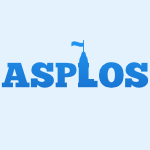 ASPLOS-2012-LinWLZ #named #power management #smarttech #using
ASPLOS-2012-LinWLZ #named #power management #smarttech #using- Reflex: using low-power processors in smartphones without knowing them (FXL, ZW, RL, LZ), pp. 13–24.
 CHI-2011-LaquaSGG #case study #information management
CHI-2011-LaquaSGG #case study #information management- Do you know dis?: a user study of a knowledge discovery tool for organizations (SL, MAS, SG, CG), pp. 2887–2896.
 CHI-2011-YewSC #categorisation #social #video
CHI-2011-YewSC #categorisation #social #video- Knowing funny: genre perception and categorization in social video sharing (JY, DAS, EFC), pp. 297–306.
 CSCW-2011-GuyURPJ #enterprise #recommendation
CSCW-2011-GuyURPJ #enterprise #recommendation- Do you want to know?: recommending strangers in the enterprise (IG, SU, IR, AP, MJ), pp. 285–294.
 SIGAda-2011-Booch #ada
SIGAda-2011-Booch #ada- Everything i know i learned from ada (GB), pp. 17–18.
 CIKM-2011-Gal #nondeterminism #power of
CIKM-2011-Gal #nondeterminism #power of- Uncertain schema matching: the power of not knowing (AG), pp. 2615–2616.
 KDD-2011-HendersonGLAETF #graph #mining #recursion #using
KDD-2011-HendersonGLAETF #graph #mining #recursion #using- It’s who you know: graph mining using recursive structural features (KH, BG, LL, LA, TER, HT, CF), pp. 663–671.
 KDD-2011-MampaeyTV #what
KDD-2011-MampaeyTV #what- Tell me what i need to know: succinctly summarizing data with itemsets (MM, NT, JV), pp. 573–581.
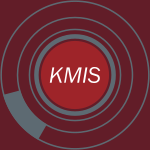 KMIS-2011-VirtaW #information management #what
KMIS-2011-VirtaW #information management #what- Sharing What You Know, Building Expertise — Information Sharing between Generations in a Business Organization (MV, GW), pp. 129–135.
 OOPSLA-2011-SonMS #named #security #what
OOPSLA-2011-SonMS #named #security #what- RoleCast: finding missing security checks when you do not know what checks are (SS, KSM, VS), pp. 1069–1084.
 CHI-2010-HornofZH #multimodal
CHI-2010-HornofZH #multimodal- Knowing where and when to look in a time-critical multimodal dual task (AJH, YZ, TH), pp. 2103–2112.
 CHI-2010-Thom-SantelliCG #collaboration #what
CHI-2010-Thom-SantelliCG #collaboration #what- What do you know?: experts, novices and territoriality in collaborative systems (JTS, DC, GG), pp. 1685–1694.
 KMIS-2010-EtoMKM #evaluation #process
KMIS-2010-EtoMKM #evaluation #process- Externalization Method and Its Evaluation of Know-how Information for Care Planning Processes by Awareness of Novices (KE, MM, YK, TM), pp. 201–206.
 KR-2010-BelleL #multi #revisited
KR-2010-BelleL #multi #revisited- Multi-Agent Only-Knowing Revisited (VB, GL).
 RE-2010-RachevaDSHW #agile #case study #requirements
RE-2010-RachevaDSHW #agile #case study #requirements- Do We Know Enough about Requirements Prioritization in Agile Projects: Insights from a Case Study (ZR, MD, KS, AH, RW), pp. 147–156.
 CHI-2009-PirolliWS #wiki
CHI-2009-PirolliWS #wiki- So you know you’re getting the best possible information: a tool that increases Wikipedia credibility (PP, EW, BS), pp. 1505–1508.
 CHI-2009-SchechterER #approach #authentication #social #what
CHI-2009-SchechterER #approach #authentication #social #what- It’s not what you know, but who you know: a social approach to last-resort authentication (SES, SE, RWR), pp. 1983–1992.
 CHI-2009-ZhouAZ #maintenance #why
CHI-2009-ZhouAZ #maintenance #why- I just don’t know why it’s gone: maintaining informal information use in inpatient care (XZ, MSA, KZ), pp. 2061–2070.
 HIMI-DIE-2009-PerezGM #community #information management #quality
HIMI-DIE-2009-PerezGM #community #information management #quality- A Proposal of Awareness Services for the Construction of Quality Community Knowledge Supported by the Knowledge Management System KnowCat (RCP, IDCG, JML), pp. 365–374.
 ECIR-2009-UdupaSBB #information retrieval #mining #query #quote
ECIR-2009-UdupaSBB #information retrieval #mining #query #quote- “They Are Out There, If You Know Where to Look”: Mining Transliterations of OOV Query Terms for Cross-Language Information Retrieval (RU, KS, AB, AB), pp. 437–448.
 KDD-2009-HanhijarviOVPTM #data mining #mining
KDD-2009-HanhijarviOVPTM #data mining #mining- Tell me something I don’t know: randomization strategies for iterative data mining (SH, MO, NV, KP, NT, HM), pp. 379–388.
 ECOOP-2009-Jones #haskell #what #why
ECOOP-2009-Jones #haskell #what #why- Classes, Jim, But Not as We Know Them — Type Classes in Haskell: What, Why, and Whither (SLPJ), p. 1.
 ICSE-2009-Murphy-HillPB #how
ICSE-2009-Murphy-HillPB #how- How we refactor, and how we know it (ERMH, CP, APB), pp. 287–297.
 LICS-2009-Friedmann #algorithm #bound #exponential #game studies
LICS-2009-Friedmann #algorithm #bound #exponential #game studies- An Exponential Lower Bound for the Parity Game Strategy Improvement Algorithm as We Know it (OF), pp. 145–156.
 DocEng-2008-FontanS #repository
DocEng-2008-FontanS #repository- Constructing a know-how repository of advices and warnings from procedural texts (LF, PSD), pp. 249–252.
 CSCW-2008-HancockTF #symmetry
CSCW-2008-HancockTF #symmetry- I know something you don’t: the use of asymmetric personal information for interpersonal advantage (JTH, CLT, KF), pp. 413–416.
 CSCW-2008-RibesF #community #representation
CSCW-2008-RibesF #community #representation- Representing community: knowing users in the face of changing constituencies (DR, TAF), pp. 107–116.
 ICML-2008-LiLW #framework #learning #self #what
ICML-2008-LiLW #framework #learning #self #what- Knows what it knows: a framework for self-aware learning (LL, MLL, TJW), pp. 568–575.
 ICPR-2008-MaZLZX #modelling
ICPR-2008-MaZLZX #modelling- Image-based plant modeling by knowing leaves from their apexes (WM, HZ, JL, XZ, BX), pp. 1–4.
 ITiCSE-2007-WhaleyG #case study #design #experience #student
ITiCSE-2007-WhaleyG #case study #design #experience #student- Do students know best?: experiences of allowing students to become course designers (HW, SG), p. 330.
 DLT-2007-Kunc #equation #question #what
DLT-2007-Kunc #equation #question #what- What Do We Know About Language Equations? (MK), pp. 23–27.
 CHI-2007-KientzACHRPA #comprehension #development
CHI-2007-KientzACHRPA #comprehension #development- Grow and know: understanding record-keeping needs for tracking the development of young children (JAK, RIA, MC, GRH, JR, SNP, GDA), pp. 1351–1360.
 CIKM-2007-JonesKPT #privacy #query #quote #what
CIKM-2007-JonesKPT #privacy #query #quote #what- “I know what you did last summer”: query logs and user privacy (RJ, RK, BP, AT), pp. 909–914.
 SIGIR-2007-CastilloDGMS #detection #using #web
SIGIR-2007-CastilloDGMS #detection #using #web- Know your neighbors: web spam detection using the web topology (CC, DD, AG, VM, FS), pp. 423–430.
 ITiCSE-2006-BoyleB #question #what
ITiCSE-2006-BoyleB #question #what- What don’t you know? (RDB, JB), p. 343.
 ITiCSE-2006-ChenLMSS #question #student #what
ITiCSE-2006-ChenLMSS #question #student #what- What do beginning students know, and what can they do? (TYC, GL, RM, KS, BS), p. 329.
 ICEIS-DISI-2006-Jain #how #question #recognition
ICEIS-DISI-2006-Jain #how #question #recognition- Biometric Recognition: How Do I Know Who You Are? (AKJ), pp. 17–18.
 CIKM-2006-HolzRDSMK #process #reuse
CIKM-2006-HolzRDSMK #process #reuse- Task-based process know-how reuse and proactive information delivery in TaskNavigator (HH, OR, AD, TS, KM, KK), pp. 522–531.
 CIKM-2006-QiD #web
CIKM-2006-QiD #web- Knowing a web page by the company it keeps (XQ, BDD), pp. 228–237.
 SEKE-2006-ChiYL #how #question #web
SEKE-2006-ChiYL #how #question #web- Web Object Cacheability How Much Do We Know? (CHC, JLY, LL), pp. 252–255.
 ICSE-2006-MikulovicH #communication #development #distributed #how #quote #requirements #what
ICSE-2006-MikulovicH #communication #development #distributed #how #quote #requirements #what- “How do I know what I have to do?”: the role of the inquiry culture in requirements communication for distributed software development projects (VM, MH), pp. 921–925.
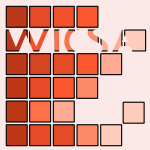 WICSA-2005-Koschke #architecture #reverse engineering #what
WICSA-2005-Koschke #architecture #reverse engineering #what- What Architects Should Know About Reverse Engineering and Rengineering (RK), pp. 4–10.
 HT-2005-Moulthrop #hypermedia #problem #what
HT-2005-Moulthrop #hypermedia #problem #what- What the geeks know: hypertext and the problem of literacy (SM), pp. 227–231.
 ITiCSE-2005-MurphyT #data type #student #what
ITiCSE-2005-MurphyT #data type #student #what- Do computer science students know what they know?: a calibration study of data structure knowledge (LM, JDT), pp. 148–152.
 CHI-2005-PatilL #configuration management #privacy #what
CHI-2005-PatilL #configuration management #privacy #what- Who gets to know what when: configuring privacy permissions in an awareness application (SP, JL), pp. 101–110.
 ECIR-2005-CliftonT #framework #named #using
ECIR-2005-CliftonT #framework #named #using- Knowing-Aboutness: Question-Answering Using a Logic-Based Framework (TC, WJT), pp. 230–244.
 ICSE-2005-MaurerM #agile #what
ICSE-2005-MaurerM #agile #what- What you always wanted to know about agile methods but did not dare to ask (FM, GM), pp. 731–732.
 CADE-2005-Dowek #consistency #question #what
CADE-2005-Dowek #consistency #question #what- What Do We Know When We Know That a Theory Is Consistent? (GD), pp. 1–6.
 VMCAI-2005-GrumbergLLS #calculus
VMCAI-2005-GrumbergLLS #calculus- Don’t Know in the µ-Calculus (OG, ML, ML, SS), pp. 233–249.
 STOC-2004-MankuNW #lookahead #network #power of #random
STOC-2004-MankuNW #lookahead #network #power of #random- Know thy neighbor’s neighbor: the power of lookahead in randomized P2P networks (GSM, MN, UW), pp. 54–63.
 CSCW-2004-GoodallLK #collaboration #detection #network
CSCW-2004-GoodallLK #collaboration #detection #network- I know my network: collaboration and expertise in intrusion detection (JRG, WGL, AK), pp. 342–345.
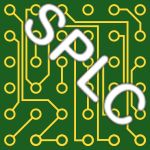 SPLC-2004-Krueger #product line #what
SPLC-2004-Krueger #product line #what- Product Line Binding Times: What You Don?t Know Can Hurt You (CWK), pp. 305–306.
 ICALP-2003-GarganoH #graph #how
ICALP-2003-GarganoH #graph #how- There Are Spanning Spiders in Dense Graphs (and We Know How to Find Them) (LG, MH), pp. 802–816.
 ICEIS-v2-2003-CanforaT #assessment #risk management
ICEIS-v2-2003-CanforaT #assessment #risk management- Dealing with the “Don’t Know” Answer in Risk Assessment (GC, LT), pp. 229–237.
 RE-2002-VickersMM #how #question #requirements
RE-2002-VickersMM #how #question #requirements- Requirements Engineering: How Do You Know How Good You Are? (AV, AM, HM), pp. 194–198.
 ICDAR-2001-AllanASH #assessment #automation
ICDAR-2001-AllanASH #assessment #automation- Automated Assessment: It’s Assessment Jim But Not As We Know It (JA, TA, NS, PH), pp. 926–931.
 KDD-2001-PadmanabhanZK #personalisation #semistructured data #what
KDD-2001-PadmanabhanZK #personalisation #semistructured data #what- Personalization from incomplete data: what you don’t know can hurt (BP, Z(Z, SOK), pp. 154–163.
 ICSM-2000-Chapin00a #maintenance #question #what
ICSM-2000-Chapin00a #maintenance #question #what- Do We Know What Preventive Maintenance Is? (NC), pp. 15–17.
 ICSM-2000-Kajko-Mattsson #exclamation #maintenance #question #what
ICSM-2000-Kajko-Mattsson #exclamation #maintenance #question #what- Preventive Maintenance! Do We Know What It Is? (MKM), pp. 12–14.
 ICSE-2000-Bryant #problem #question #re-engineering
ICSE-2000-Bryant #problem #question #re-engineering- It’s engineering Jim ... but not as we know it: software engineering — solution to the software crisis, or part of the problem? (AB), pp. 78–87.
 HCI-CCAD-1999-ContractorBZ #case study #community #named #network
HCI-CCAD-1999-ContractorBZ #case study #community #named #network- PrairieKNOW: a tool to assist the study, creation, and growth of community networks (NSC, APB, DZ), pp. 447–451.
 ITiCSE-1998-MeadHBRBS #education #re-engineering
ITiCSE-1998-MeadHBRBS #education #re-engineering- Everything you ever wanted to know about software engineering education, but were afraid to ask (panel) (NRM, TBH, DJB, MR, OB, FLVS), pp. 260–263.
 KR-1998-LakemeyerL #logic #named
KR-1998-LakemeyerL #logic #named- AOL: A logic of Acting, Sensing, Knowing, and Only Knowing (GL, HJL), pp. 316–329.
 SIGIR-1997-Cooper #approximate #how
SIGIR-1997-Cooper #approximate #how- How to Read Less and Know More — Approximate OCR for Thai (DC), pp. 216–225.
 ICSE-1997-Ackerman #collaboration
ICSE-1997-Ackerman #collaboration- Everything you Need To Know About Collaboration and Collaboration Software (MSA), p. 592.
 CSCW-1996-Bazzigaluppi #question #what
CSCW-1996-Bazzigaluppi #question #what- Groupware at Work: It’s Here Now, But Do We Know What It Is Yet? (GB), pp. 438–440.
 KR-1996-Lakemeyer #calculus
KR-1996-Lakemeyer #calculus- Only Knowing in the Situation Calculus (GL), pp. 14–25.
 SIGMOD-1995-Golding #replication
SIGMOD-1995-Golding #replication- Things Every Update Replication Customer Should Know (RG), pp. 439–440.
 STOC-1995-DiaconisS #algorithm #question #what
STOC-1995-DiaconisS #algorithm #question #what- What do we know about the Metropolis algorithm? (PD, LSC), pp. 112–129.
 INTERCHI-1993-HerbslebK #design #what
INTERCHI-1993-HerbslebK #design #what- Preserving knowledge in design projects: what designers need to know (JDH, EK), pp. 7–14.
 RE-1993-KuwanaH #empirical #representation #requirements #what
RE-1993-KuwanaH #empirical #representation #requirements #what- Representing knowledge in requirements engineering: an empirical study of what software engineers need to know (EK, JDH), pp. 273–276.
 KR-1992-Lakemeyer
KR-1992-Lakemeyer- All You Ever Wanted to Know about Tweety (But Were Afraid to Ask) (GL), pp. 639–648.
 TOOLS-USA-1991-Meyer #how #question
TOOLS-USA-1991-Meyer #how #question- Do we know how to find the classes? (BM), pp. 349–350.
 CLP-1990-Reiter90 #database #question #what
CLP-1990-Reiter90 #database #question #what- What Should a Database Know? (RR), p. 765.
 PODS-1988-Reiter #database #question #what
PODS-1988-Reiter #database #question #what- What Should A Database Know? (RR), pp. 302–304.
 HCI-CE-1987-Salvendy #development #human-computer #interactive #research #what
HCI-CE-1987-Salvendy #development #human-computer #interactive #research #what- What We Know and What We Should Know About Human-Computer Interaction: Strategies for Research and Development (GS), pp. 13–19.
 CADE-1986-Eisinger #graph #what
CADE-1986-Eisinger #graph #what- What You Always Wanted to Know About Clause Graph Resolution (NE), pp. 316–336.
 DAC-2015-WolfF #architecture #continuation #question #what
DAC-2015-WolfF #architecture #continuation #question #what ICPC-2015-MinelliML #developer #how #what
ICPC-2015-MinelliML #developer #how #what CHI-2015-ClarkSMK #comprehension #image #privacy #quote
CHI-2015-ClarkSMK #comprehension #image #privacy #quote CHI-2015-HangLH #authentication #exclamation #security #smarttech #what
CHI-2015-HangLH #authentication #exclamation #security #smarttech #what CHI-2015-KimCD #detection #interactive #monitoring
CHI-2015-KimCD #detection #interactive #monitoring CHI-2015-WarshawMWKBS #algorithm #comprehension #people
CHI-2015-WarshawMWKBS #algorithm #comprehension #people LCT-2015-ValdezBGSZ #complexity #visualisation #what
LCT-2015-ValdezBGSZ #complexity #visualisation #what RecSys-2015-Abel #recommendation
RecSys-2015-Abel #recommendation MoDELS-2015-SunkleKK #case study #modelling
MoDELS-2015-SunkleKK #case study #modelling ESEC-FSE-2015-HermannREM #java #towards
ESEC-FSE-2015-HermannREM #java #towards ESEC-FSE-2015-JohnsonPMH #adaptation #concept #developer #tool support
ESEC-FSE-2015-JohnsonPMH #adaptation #concept #developer #tool support ICSE-v2-2015-PetersM #re-engineering #what
ICSE-v2-2015-PetersM #re-engineering #what PPoPP-2015-Gramoli #algorithm #concurrent #impact analysis
PPoPP-2015-Gramoli #algorithm #concurrent #impact analysis SIGMOD-2014-AgarwalMKTJMMS #approximate #performance #query #reliability
SIGMOD-2014-AgarwalMKTJMMS #approximate #performance #query #reliability CHI-2014-BrumbyCCF #behaviour #how #question #visual notation #what
CHI-2014-BrumbyCCF #behaviour #how #question #visual notation #what CHI-2014-GouZY #automation #comprehension #social #social media
CHI-2014-GouZY #automation #comprehension #social #social media ECIR-2014-MederPH #enterprise #named
ECIR-2014-MederPH #enterprise #named KDD-2014-ZhaoGHJWL #microblog #recommendation #what
KDD-2014-ZhaoGHJWL #microblog #recommendation #what KEOD-2014-SongJ #empirical
KEOD-2014-SongJ #empirical SIGIR-2014-PengS00W #smarttech
SIGIR-2014-PengS00W #smarttech MoDELS-2014-ReggioLR #bibliography #uml #what
MoDELS-2014-ReggioLR #bibliography #uml #what MoDELS-2014-ReggioLR #bibliography #uml #what
MoDELS-2014-ReggioLR #bibliography #uml #what SAT-2014-BalyoFHB #set
SAT-2014-BalyoFHB #set HT-2013-GuerreiroG #exclamation #quote #what
HT-2013-GuerreiroG #exclamation #quote #what CHI-2013-KhovanskayaBCVG #approach #design #quote #what
CHI-2013-KhovanskayaBCVG #approach #design #quote #what CSCW-2013-GrayEVL #facebook
CSCW-2013-GrayEVL #facebook ICEIS-J-2013-KahkonenMS #enterprise #integration #question #what
ICEIS-J-2013-KahkonenMS #enterprise #integration #question #what KDIR-KMIS-2013-DowGABP #information management
KDIR-KMIS-2013-DowGABP #information management SIGIR-2013-PengS00W #smarttech
SIGIR-2013-PengS00W #smarttech REFSQ-2013-DanevaBH #architecture #case study #experience #quality #question #requirements #what
REFSQ-2013-DanevaBH #architecture #case study #experience #quality #question #requirements #what SOSP-2013-DavidGT
SOSP-2013-DavidGT CHI-2012-LucaHBLH #authentication #exclamation
CHI-2012-LucaHBLH #authentication #exclamation CSCW-2012-LeeTH #coordination #named
CSCW-2012-LeeTH #coordination #named CIKM-2012-CosciaR #how #using #web
CIKM-2012-CosciaR #how #using #web CIKM-2012-TTBS #twitter
CIKM-2012-TTBS #twitter ICML-2012-BachrachGMG #adaptation #crowdsourcing #how #testing #visual notation
ICML-2012-BachrachGMG #adaptation #crowdsourcing #how #testing #visual notation ICPR-2012-FangZ #learning
ICPR-2012-FangZ #learning KR-2012-LakemeyerL #logic
KR-2012-LakemeyerL #logic SIGIR-2012-Sakai #evaluation #information retrieval #mobile #towards #what
SIGIR-2012-Sakai #evaluation #information retrieval #mobile #towards #what ASPLOS-2012-LinWLZ #named #power management #smarttech #using
ASPLOS-2012-LinWLZ #named #power management #smarttech #using CHI-2011-LaquaSGG #case study #information management
CHI-2011-LaquaSGG #case study #information management CHI-2011-YewSC #categorisation #social #video
CHI-2011-YewSC #categorisation #social #video CSCW-2011-GuyURPJ #enterprise #recommendation
CSCW-2011-GuyURPJ #enterprise #recommendation SIGAda-2011-Booch #ada
SIGAda-2011-Booch #ada CIKM-2011-Gal #nondeterminism #power of
CIKM-2011-Gal #nondeterminism #power of KDD-2011-HendersonGLAETF #graph #mining #recursion #using
KDD-2011-HendersonGLAETF #graph #mining #recursion #using KDD-2011-MampaeyTV #what
KDD-2011-MampaeyTV #what KMIS-2011-VirtaW #information management #what
KMIS-2011-VirtaW #information management #what OOPSLA-2011-SonMS #named #security #what
OOPSLA-2011-SonMS #named #security #what CHI-2010-HornofZH #multimodal
CHI-2010-HornofZH #multimodal CHI-2010-Thom-SantelliCG #collaboration #what
CHI-2010-Thom-SantelliCG #collaboration #what KMIS-2010-EtoMKM #evaluation #process
KMIS-2010-EtoMKM #evaluation #process KR-2010-BelleL #multi #revisited
KR-2010-BelleL #multi #revisited RE-2010-RachevaDSHW #agile #case study #requirements
RE-2010-RachevaDSHW #agile #case study #requirements CHI-2009-PirolliWS #wiki
CHI-2009-PirolliWS #wiki CHI-2009-SchechterER #approach #authentication #social #what
CHI-2009-SchechterER #approach #authentication #social #what CHI-2009-ZhouAZ #maintenance #why
CHI-2009-ZhouAZ #maintenance #why HIMI-DIE-2009-PerezGM #community #information management #quality
HIMI-DIE-2009-PerezGM #community #information management #quality ECIR-2009-UdupaSBB #information retrieval #mining #query #quote
ECIR-2009-UdupaSBB #information retrieval #mining #query #quote KDD-2009-HanhijarviOVPTM #data mining #mining
KDD-2009-HanhijarviOVPTM #data mining #mining ECOOP-2009-Jones #haskell #what #why
ECOOP-2009-Jones #haskell #what #why ICSE-2009-Murphy-HillPB #how
ICSE-2009-Murphy-HillPB #how LICS-2009-Friedmann #algorithm #bound #exponential #game studies
LICS-2009-Friedmann #algorithm #bound #exponential #game studies DocEng-2008-FontanS #repository
DocEng-2008-FontanS #repository CSCW-2008-HancockTF #symmetry
CSCW-2008-HancockTF #symmetry CSCW-2008-RibesF #community #representation
CSCW-2008-RibesF #community #representation ICML-2008-LiLW #framework #learning #self #what
ICML-2008-LiLW #framework #learning #self #what ICPR-2008-MaZLZX #modelling
ICPR-2008-MaZLZX #modelling ITiCSE-2007-WhaleyG #case study #design #experience #student
ITiCSE-2007-WhaleyG #case study #design #experience #student DLT-2007-Kunc #equation #question #what
DLT-2007-Kunc #equation #question #what CHI-2007-KientzACHRPA #comprehension #development
CHI-2007-KientzACHRPA #comprehension #development CIKM-2007-JonesKPT #privacy #query #quote #what
CIKM-2007-JonesKPT #privacy #query #quote #what SIGIR-2007-CastilloDGMS #detection #using #web
SIGIR-2007-CastilloDGMS #detection #using #web ITiCSE-2006-BoyleB #question #what
ITiCSE-2006-BoyleB #question #what ITiCSE-2006-ChenLMSS #question #student #what
ITiCSE-2006-ChenLMSS #question #student #what ICEIS-DISI-2006-Jain #how #question #recognition
ICEIS-DISI-2006-Jain #how #question #recognition CIKM-2006-HolzRDSMK #process #reuse
CIKM-2006-HolzRDSMK #process #reuse CIKM-2006-QiD #web
CIKM-2006-QiD #web SEKE-2006-ChiYL #how #question #web
SEKE-2006-ChiYL #how #question #web ICSE-2006-MikulovicH #communication #development #distributed #how #quote #requirements #what
ICSE-2006-MikulovicH #communication #development #distributed #how #quote #requirements #what WICSA-2005-Koschke #architecture #reverse engineering #what
WICSA-2005-Koschke #architecture #reverse engineering #what HT-2005-Moulthrop #hypermedia #problem #what
HT-2005-Moulthrop #hypermedia #problem #what ITiCSE-2005-MurphyT #data type #student #what
ITiCSE-2005-MurphyT #data type #student #what CHI-2005-PatilL #configuration management #privacy #what
CHI-2005-PatilL #configuration management #privacy #what ECIR-2005-CliftonT #framework #named #using
ECIR-2005-CliftonT #framework #named #using ICSE-2005-MaurerM #agile #what
ICSE-2005-MaurerM #agile #what CADE-2005-Dowek #consistency #question #what
CADE-2005-Dowek #consistency #question #what VMCAI-2005-GrumbergLLS #calculus
VMCAI-2005-GrumbergLLS #calculus STOC-2004-MankuNW #lookahead #network #power of #random
STOC-2004-MankuNW #lookahead #network #power of #random CSCW-2004-GoodallLK #collaboration #detection #network
CSCW-2004-GoodallLK #collaboration #detection #network SPLC-2004-Krueger #product line #what
SPLC-2004-Krueger #product line #what ICALP-2003-GarganoH #graph #how
ICALP-2003-GarganoH #graph #how ICEIS-v2-2003-CanforaT #assessment #risk management
ICEIS-v2-2003-CanforaT #assessment #risk management RE-2002-VickersMM #how #question #requirements
RE-2002-VickersMM #how #question #requirements ICDAR-2001-AllanASH #assessment #automation
ICDAR-2001-AllanASH #assessment #automation KDD-2001-PadmanabhanZK #personalisation #semistructured data #what
KDD-2001-PadmanabhanZK #personalisation #semistructured data #what ICSM-2000-Chapin00a #maintenance #question #what
ICSM-2000-Chapin00a #maintenance #question #what ICSM-2000-Kajko-Mattsson #exclamation #maintenance #question #what
ICSM-2000-Kajko-Mattsson #exclamation #maintenance #question #what ICSE-2000-Bryant #problem #question #re-engineering
ICSE-2000-Bryant #problem #question #re-engineering HCI-CCAD-1999-ContractorBZ #case study #community #named #network
HCI-CCAD-1999-ContractorBZ #case study #community #named #network ITiCSE-1998-MeadHBRBS #education #re-engineering
ITiCSE-1998-MeadHBRBS #education #re-engineering KR-1998-LakemeyerL #logic #named
KR-1998-LakemeyerL #logic #named SIGIR-1997-Cooper #approximate #how
SIGIR-1997-Cooper #approximate #how ICSE-1997-Ackerman #collaboration
ICSE-1997-Ackerman #collaboration CSCW-1996-Bazzigaluppi #question #what
CSCW-1996-Bazzigaluppi #question #what KR-1996-Lakemeyer #calculus
KR-1996-Lakemeyer #calculus SIGMOD-1995-Golding #replication
SIGMOD-1995-Golding #replication STOC-1995-DiaconisS #algorithm #question #what
STOC-1995-DiaconisS #algorithm #question #what INTERCHI-1993-HerbslebK #design #what
INTERCHI-1993-HerbslebK #design #what RE-1993-KuwanaH #empirical #representation #requirements #what
RE-1993-KuwanaH #empirical #representation #requirements #what KR-1992-Lakemeyer
KR-1992-Lakemeyer TOOLS-USA-1991-Meyer #how #question
TOOLS-USA-1991-Meyer #how #question CLP-1990-Reiter90 #database #question #what
CLP-1990-Reiter90 #database #question #what PODS-1988-Reiter #database #question #what
PODS-1988-Reiter #database #question #what HCI-CE-1987-Salvendy #development #human-computer #interactive #research #what
HCI-CE-1987-Salvendy #development #human-computer #interactive #research #what CADE-1986-Eisinger #graph #what
CADE-1986-Eisinger #graph #what









